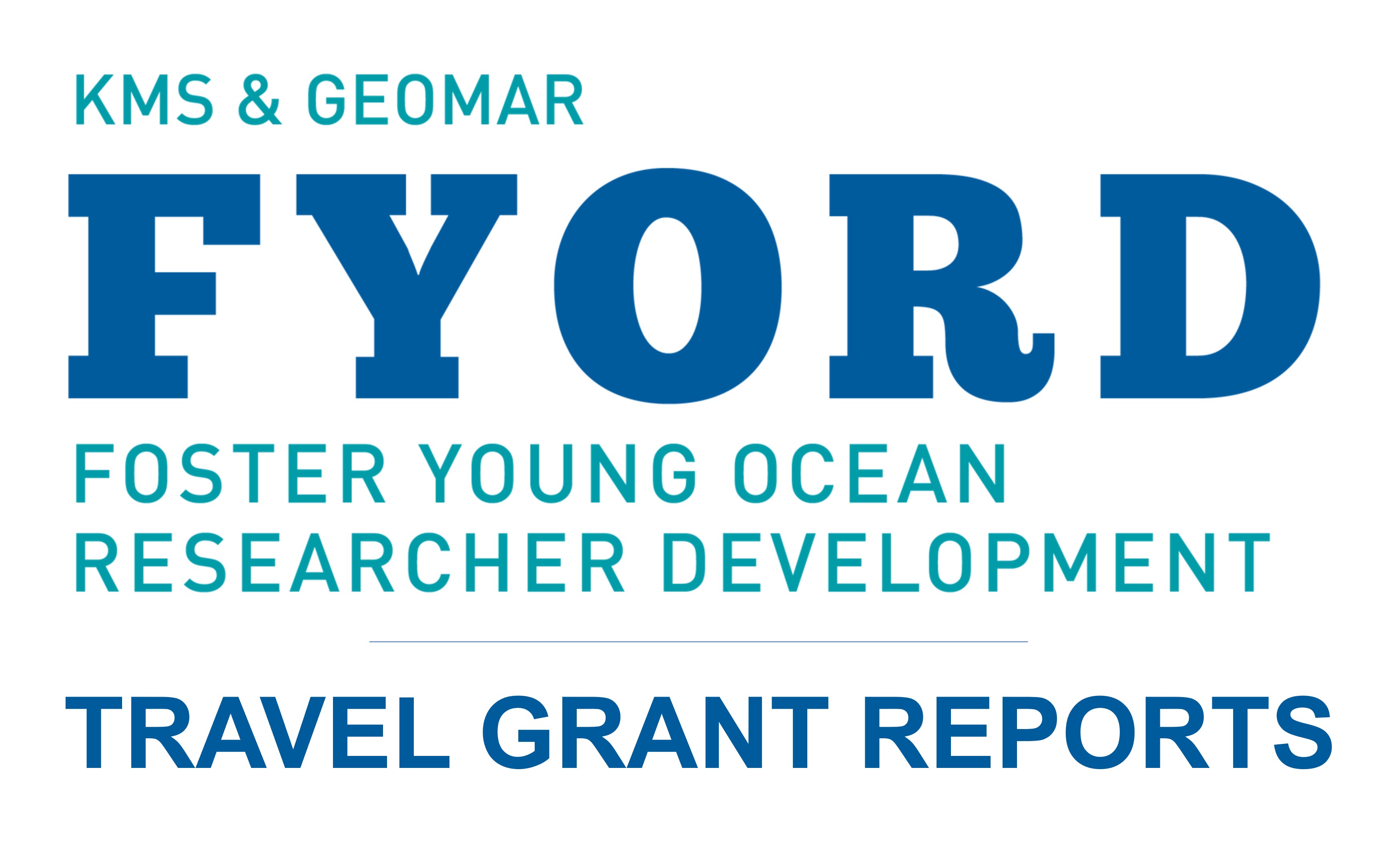EGU 2025 (I)
Hello, my name is Elisaveta – though I often go by Lisa – and I’m a second-year doctoral researcher at GEOMAR Helmholtz Centre for Ocean Research Kiel. My research focuses on marine geophysics, particularly using ocean bottom seismometers (OBS) and 2D seismic reflection data. At EGU 2025, I presented data from the HYDEE-OBS project, which investigates the accretionary wedge on the southern Hikurangi Margin offshore New Zealand.
Attending the EGU General Assembly in Vienna this year was a truly enriching experience. Admittedly, the first two days were a bit overwhelming – the scale of the conference and the number of participants were impressive, and navigating the various poster halls and session rooms took some time getting used to. Thankfully, my poster presentation was scheduled for Wednesday, April 30, which gave me enough time to get used to the venue and plan my schedule effectively. Presenting my research was my highlight of the week. I had the opportunity to share my findings with fellow researchers and engage in in-depth discussions during the poster session. The feedback and questions I received were insightful and will certainly help guide the next steps in my work. I found that poster sessions offered more time for meaningful conversations and brainstorming than the oral presentations, where time constraints often limited audience interaction.
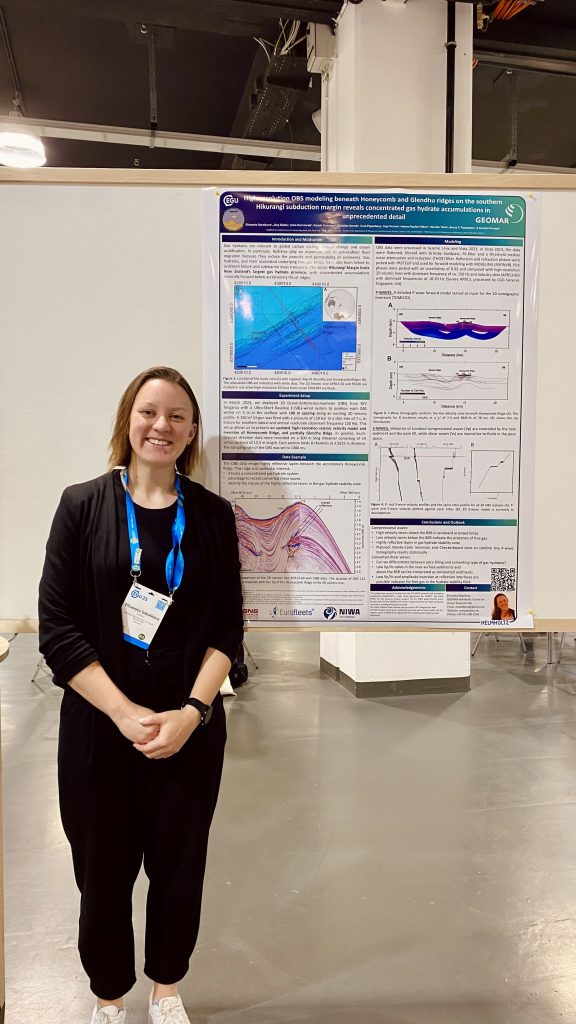
When not presenting, I explored a variety of sessions, especially those on CO₂ storage, which were incredibly engaging and well-attended. Some sessions were so popular that attendees had to stand in the doorways to listen in. I highly recommend using the official conference app to plan your schedule; it is far more user-friendly than the web interface and allows you to bookmark talks and build a personalized schedule.
One practical tip I picked up early: bring your own lunch. The lunch breaks were very busy, and nearby supermarkets were often overcrowded. Bringing food saved me valuable time and ensured I could get to afternoon sessions promptly and find a seat. While the Vienna subway provided good access to the venue, it was often crowded during peak hours. A colleague and I opted to use the city’s convenient rental bike system instead – an excellent choice given the beautiful weather during the conference week.
I am sincerely grateful to FYORD for awarding me the travel grant. With limited project funding available, this support enabled me to attend such a prestigious event, exchange ideas with international colleagues, and immerse myself in the vibrant geoscience community.
Lisa
EGU 2025 (II)
Hi, my name is Jasper Ferber, and I am a master’s student at Kiel University. I am enrolled in the program Marine Geosciences and am currently writing my thesis. Before going all-in on my thesis, I was working on oceanographic data from the Southern Ocean and East Antarctica for my project work. Here I was examining warm water masses present on the Antarctic continental shelf and the potential impact they might have on the melting of the East Antarctic Ice Shelf. This research is part of a bigger project in the area and allowed me to lay some groundwork for my thesis to better understand the oceanographic setting I am working in.
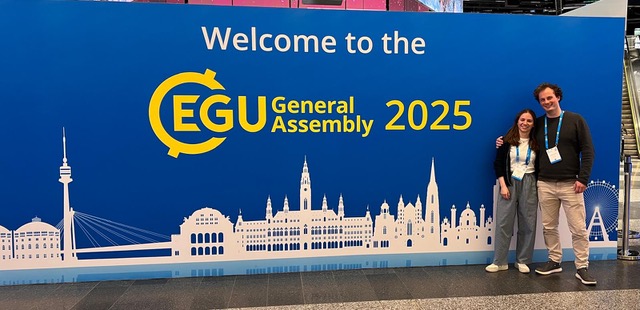
In my mind, going to a big conference was not really a thing master’s students do, so I was surprised and excited when my supervisor suggested applying for a poster at EGU. The General Assembly of the European Geosciences Union (EGU) is one of the largest European conferences and was attended by almost 21.000 researchers this year. It is held annually in Vienna and attracts researchers from all over the world who submit an overwhelming 19.000 abstracts.
To finance the registration and required membership fees, the accommodation in Vienna and all the other costs that are associated with attending such a conference, I applied for a FYORD Travel Grant and was thrilled when I received the confirmation soon after.
The conference itself was impressive, to say the least. The sheer number of people, presentations and posters was pretty overwhelming at first, and it took some getting used to the task of selecting what to attend. There were several occasions where I had to decide between three sessions I was interested in, which were running at the same time. After the first two days, however, I had gotten used to this and was getting better at finding the presentations that mattered to me. The personal program you can create in the EGU app helped a lot to prioritise the sessions.
There were lots of interesting talks, but I think overall, I preferred the poster sessions where there was more time to talk to the people and get a better understanding of their work. My own poster session was a lot of fun too, and I had several very engaging conversations with people working on similar topics.
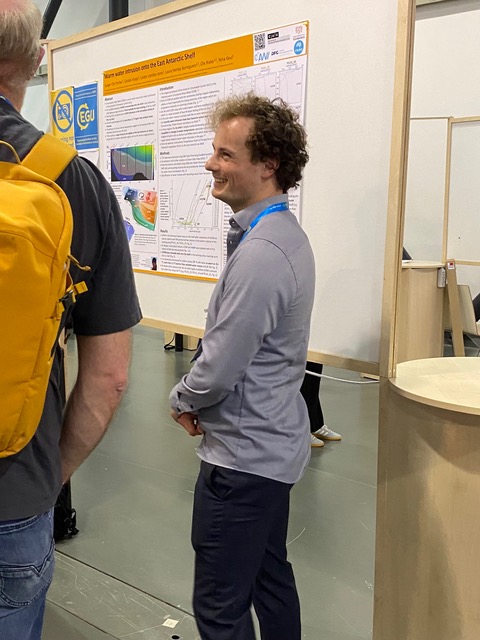
Besides the “normal” formats of talks and posters, I also attended a couple of short courses that were interesting to me. One that I found particularly useful was on staying up to date with research and how to use research tools effectively. Another was on the use of AI in research. Additionally, there were some debates and especially the last event of the conference, a great debate on attacks on science and how the geoscience community should respond left quite an impression.
In the evenings and sometimes throughout the day, there were plenty of opportunities for networking. I met lots of people during scheduled networking events, the coffee breaks, the free drinks at the end of the day or at privately organised get-togethers. It was great to catch up with people I already knew and to meet scientists from all over. Some were senior scientists, but there were also lots of early-career researchers who were especially easy to talk to, and an atmosphere of community prevailed throughout the conference.
EGU 2025 was my first major conference, and it was an amazing experience. I learned a lot through attending talks, conversations at poster sessions and insights from short courses.
Additionally, it was great to meet friends and meet new people. Overall, a great time.
Jasper
EGU 2025 (III)
Hey! I’m Sibiao, an early-career researcher (ECR) at GEOMAR, exploring how the Earth’s deep movements shape the ocean floor, creating underwater mountains, valleys, and basins. I use advanced computer models to simulate how tectonic plates interact beneath the ocean and form complex geological features we see on the seabed. My work aims to reveal the hidden connections between deep Earth processes and the visible changes beneath the sea.
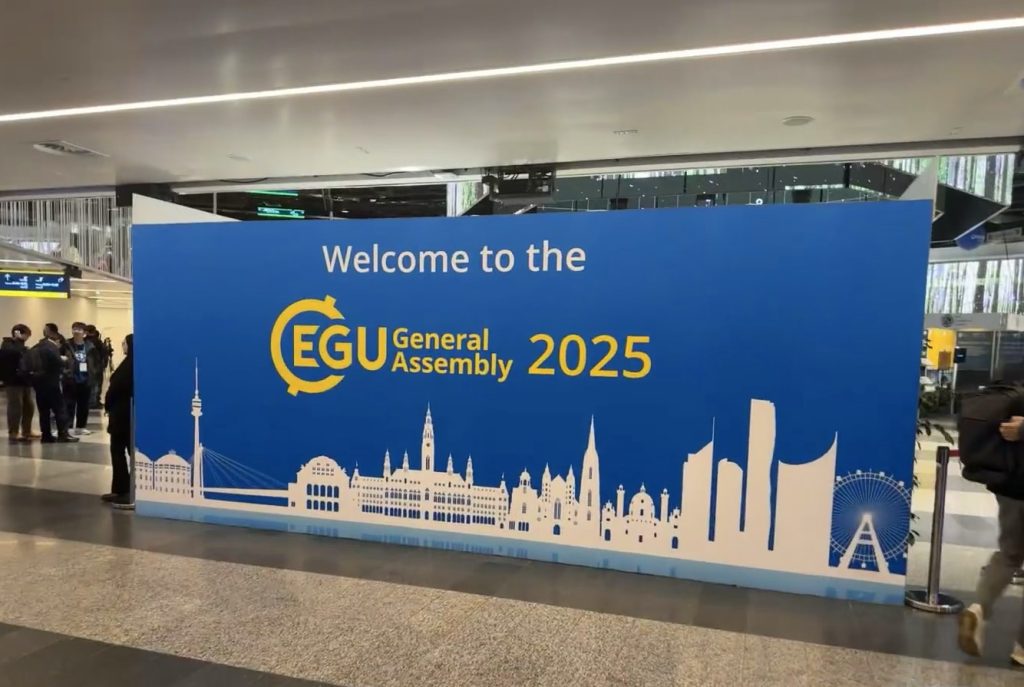
I am very grateful to FYORD for providing me with a travel grant to attend EGU 2025 in Vienna. During EGU 2025, I presented my recent research on seamounts, a type of underwater mountain, in the session titled “Magmatic, hydrothermal and tectonic processes at mid-oceanic ridges and transform faults: new insights from observations, experiments and numerical modelling.” My presentation received a lot of constructive feedback and suggestions from peers, which have provided me with fresh perspectives and valuable directions for the next steps of my work.
Attending this session also allowed me to gain deeper insights into the most recent advances in the study of the mid-ocean ridge systems, particularly regarding magmatic and tectonic processes at slow- and ultra-slow spreading ridges and their intersections with transform faults. These discussions and findings significantly broadened my academic horizon and deepened my understanding of current trends in the field.
From a networking perspective, I thoroughly enjoyed engaging with fellow early-career scientists from diverse backgrounds and institutions within our small geodynamics community. We shared not only our research but also our academic life, especially during our session dinner, which fostered a strong sense of camaraderie. I also had the chance to connect with several senior researchers, from whom I gained invaluable advice on career development and research strategy.
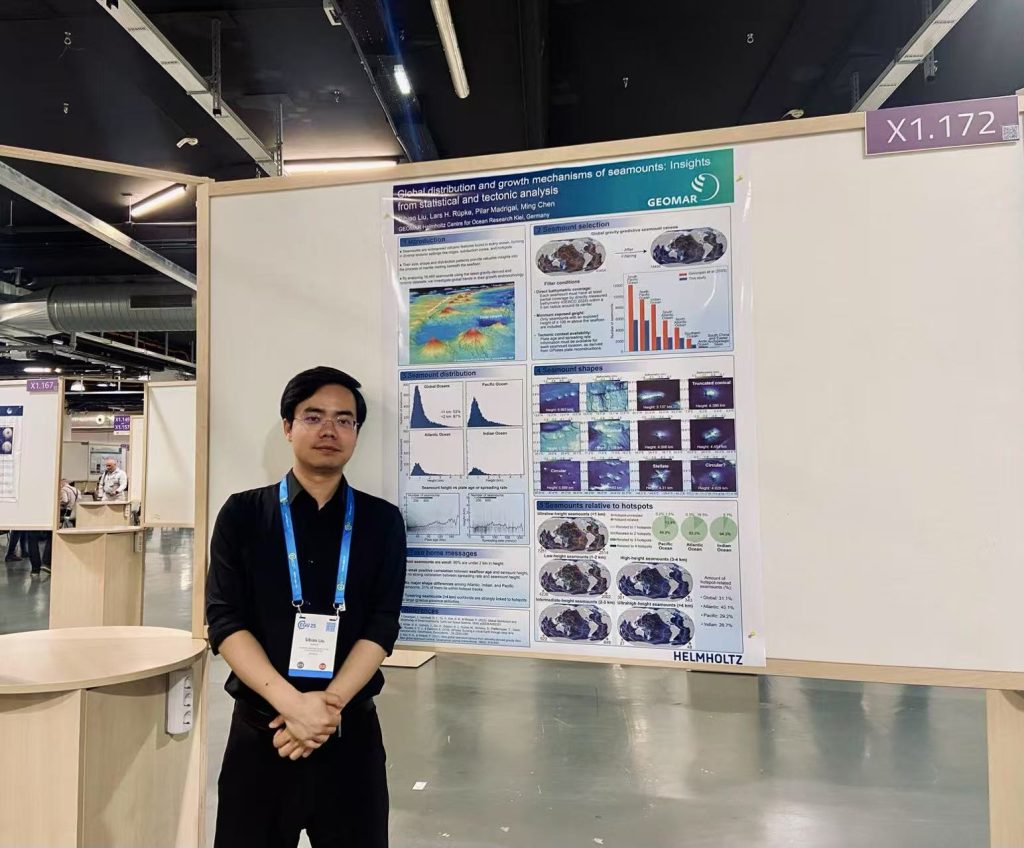
Another highlight of the conference this year was the announcement that Prof. Dr. Heidrun Kopp from GEOMAR has been awarded the prestigious 2025 Stephan Mueller Medal. Prof. Kopp, a professor at Kiel University and head of the RD4 at GEOMAR, was recognized for her groundbreaking work on convergent plate boundaries, megathrust earthquakes, active fault slip, magmatic arc systems, and related geohazards. Her leadership in marine geophysics is internationally renowned, especially for leading seven major ocean expeditions in subduction zones across the Pacific, Atlantic, and Indian Oceans. This recognition not only honours her remarkable achievements but also serves as a strong source of inspiration for early career researchers like myself.
EGU 2025 was a highly rewarding experience, enriching both my scientific work and professional network. I look forward to applying the insights gained during the conference to my ongoing and future research endeavours. I would highly recommend it to all ECRs in the geoscience community.
Sibiao
